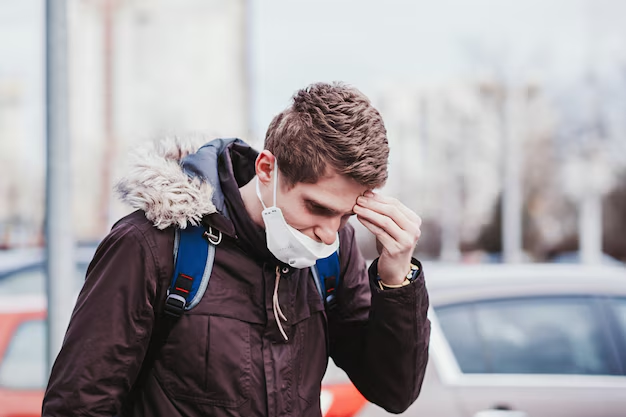Can Cold Weather Actually Cause Pneumonia? Here’s What You Need to Know
When winter arrives, the cold air often brings more than just chilly temperatures. Many people face bouts of the common cold, flu, and sometimes, more severe respiratory issues. Among these concerns is pneumonia, a potentially serious lung infection. But can exposure to cold weather actually give you pneumonia? Let’s dive deep into this topic to provide clarity and valuable insights.
Understanding Pneumonia
Before we tackle the question, it's crucial to understand what pneumonia is. Pneumonia is an infection that inflames the air sacs in one or both lungs. The air sacs may fill with fluid or pus, causing symptoms such as a cough with phlegm, fever, chills, and difficulty breathing. These symptoms range from mild to severe, and in some cases, pneumonia can be life-threatening.
Causes of Pneumonia
Pneumonia can be caused by a variety of pathogens, including:
- Bacteria: The most common cause is Streptococcus pneumoniae.
- Viruses: Including influenza, respiratory syncytial virus (RSV), or SARS-CoV-2 (the virus that causes COVID-19).
- Fungi: More common in individuals with weakened immune systems.
Risk Factors for Pneumonia
Certain groups are more at risk of contracting pneumonia, such as:
- Infants and young children
- Elderly individuals
- People with chronic illnesses like asthma or heart disease
- Smokers
- Those with weakened immune systems
Does Cold Weather Cause Pneumonia?
The simple answer is no, cold weather itself does not cause pneumonia. Pneumonia is caused by germs—bacteria, viruses, or fungi—not by cold temperatures. However, there are ways in which the cold can indirectly increase the risk of developing pneumonia.
How Cold Weather Contributes
Indoor Crowding: During colder months, people tend to spend more time indoors. This increased time in enclosed spaces can lead to higher transmission rates of colds, flu, and other respiratory infections that may subsequently lead to pneumonia.
Weakened Immune System: The body might experience a change in immune response in cold weather. Stress from the cold, coupled with less exposure to sunlight (and thus, vitamin D), can potentially affect immune function.
Existing Respiratory Conditions: Cold air can exacerbate existing respiratory conditions, like asthma, which can pave the way for infections leading to pneumonia.
A Note on Cold Air and Viral Infections
Cold air may contribute to conditions conducive to respiratory infections. For instance:
- Dry air can dry out mucous membranes in the nose and throat, reducing their ability to trap and attack viruses effectively.
- People may neglect proper ventilation in a bid to keep homes warm, increasing the chance of spreading viruses indoors.
Preventing Pneumonia: Practical Tips
While you can't control the weather, you can take steps to protect yourself against pneumonia—especially during the colder months.
Strengthen Your Immune System
- Get vaccinated: Annual flu vaccines and pneumococcal vaccines can lower the risk of respiratory infections significantly.
- Eat a balanced diet rich in fruits, vegetables, and whole grains.
- Stay hydrated: Fluids help keep your immune system functioning optimally.
- Supplement with vitamin D: Especially if you have limited sunlight exposure.
Maintain Hygiene
- Wash hands regularly with soap and water, especially after coughing, sneezing, or touching public surfaces.
- Use hand sanitizers when soap and water aren’t available.
- Avoid touching your face to prevent germs from entering your body through the eyes, nose, or mouth.
Environmental Controls
- Enhance indoor air quality: Use air purifiers or humidifiers to maintain a healthy environment.
- Ventilate rooms regularly to reduce indoor contaminant levels.
Behavioral Adjustments
- Dress warmly in layers to maintain body heat.
- Avoid smoking to prevent lung irritation and complications.
- Exercise regularly to boost overall health and immunity.
Recognizing Symptoms of Pneumonia
Identifying symptoms early can lead to prompt medical attention. Be alert for:
- Persistent cough
- Fever and chills
- Shortness of breath
- Chest pain worsened by breathing or coughing
- Fatigue and loss of appetite
If you or someone you know experiences these symptoms, consider seeking medical advice—especially if part of a high-risk group.
Final Takeaways
While the cold weather itself isn’t a direct cause of pneumonia, its related conditions can increase susceptibility to infections that might lead to pneumonia. By understanding the nature of pneumonia and taking preventive steps, you can better navigate the winter months safely.
Stay informed and proactive this season to protect yourself and your loved ones from the risk factors associated with pneumonia. Cold weather is inevitable, but the steps you take can make a difference in your health outcomes.
Quick Summary: Pneumonia and Cold Weather 🌬️🧣
- ❄️ Direct Cause: Cold weather doesn't cause pneumonia; bacterial, viral, and fungal infections do.
- 🏠 Indoor Risks: More indoor time in cold weather can increase contact and spreading of germs.
- 🧬 Immunity Boost: Vaccines, a balanced diet, and adequate hydration help shield against infections.
- 👐 Hygiene Matters: Regular handwashing and avoiding touching your face are key preventative measures.
- 🏋️ Lifestyle Choices: Stay warm, avoid smoking, and exercise to enhance your health defenses.
- 👀 Watch for Symptoms: Persistent cough, fever, and shortness of breath may warrant medical consultation.
By following these insights, you can prepare for the winter months with confidence and keep your respiratory health in check. 🌟

Related Articles
- a Typical Pneumonia
- Can a Cold Turn Into Pneumonia
- Can a Sinus Infection Turn Into Pneumonia
- Can Amoxicillin Cure Pneumonia
- Can Amoxicillin Treat Pneumonia
- Can Baby Oil Cause Pneumonia
- Can Bronchitis Turn Into Pneumonia
- Can Covid Turn Into Pneumonia
- Can Doxycycline Treat Pneumonia
- Can Flu Turn Into Pneumonia
